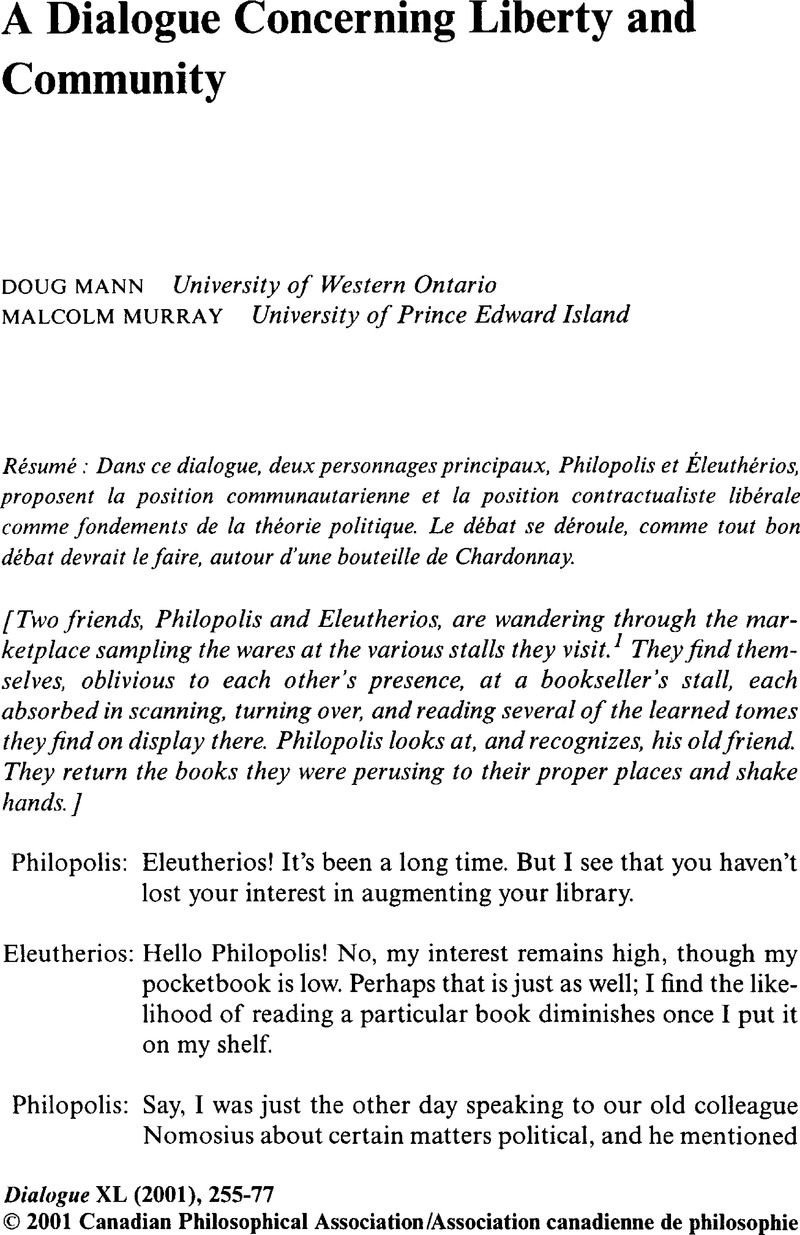No CrossRef data available.
Published online by Cambridge University Press: 13 April 2010

1 The temporal and geographic location of this dialogue should not be confused with any actual time or place. Furthermore, its characters should not be mistaken for any real persons, either living or dead. It might be noted, however, that the views expressed by Philopolis bear an uncanny similarity to those held by Doug Mann, while the ideas expressed by Eleutherios eerily echo those held by Malcolm Murray.
2 Although the characters were miserly in citing sources for their ideas, theauthors are not unaware of important modern works which have explored many facets of the ideas presented here. They include, Gauthier, David, Morals by Agreement (Oxford: Oxford University Press, 1986)Google Scholar; Kymlicka, Will, Liberalism, Community, and Culture (Oxford: Clarendon Press, 1989)Google Scholar; MacIntyre, Alasdair, After Virtue: A Study in Moral Philosophy (Notre Dame, IN: University of Notre Dame Press, 1984)Google Scholar; Narveson, Jan, The Libertarian Idea (Philadelphia: Temple University Press, 1988)Google Scholar; Nozick, Robert, Anarchy, State, and Utopia (New York: Basic Books, 1974)Google Scholar; Rawls, John, A Theory of Justice (Cambridge: Harvard University Press, 1971)Google Scholar; Rawls, John, Political Liberalism (New York: Columbia University Press, 1993)Google Scholar; Sandel, Michael, Liberalism and the Limits of Justice (Cambridge: Cambridge University Press, 1982)Google Scholar; Saul, John Ralston, The Unconscious Civilization (Concord, ON: Anansi Press, 1995)Google Scholar; Taylor, Charles, Sources of the Self: The Making of Modern Identity (Cambridge, MA: Harvard University Press, 1989)Google Scholar; and Taylor, Charles, The Malaise of Modernity (Concord, ON: Anansi Press, 1991).Google Scholar